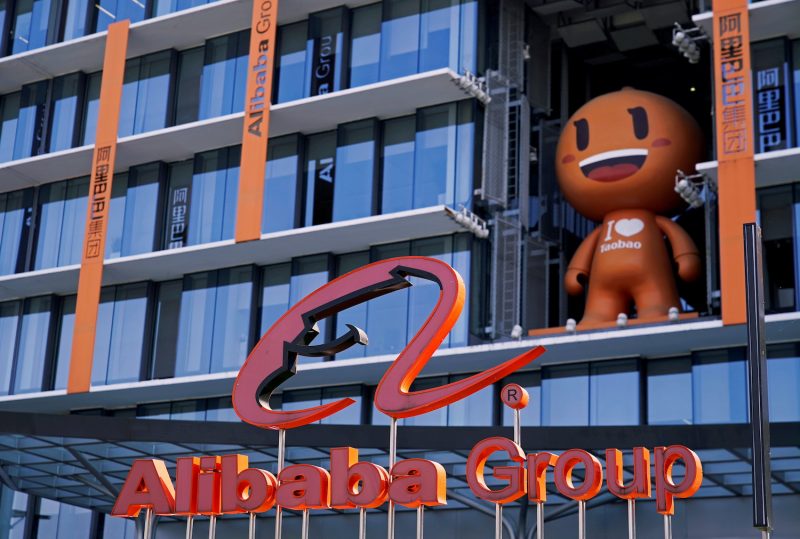Stocks in Asia were mixed on Thursday, with South Korea down 1.2% while China’s blue chips rose 1.7%, and Japan’s Nikkei was flat.
China’s CSI300 index jumped to its highest level since early March, while the Shanghai Composite Index climbed 1.6%, also hitting a near four-month closing high.
Chinese tech shares in Hong Kong staged a strong rebound, rising 2.8%, after Chinese President Xi Jinping chaired a top-level meeting that approved a plan for further development of large payment firms and the fintech sector.
Index heavyweight Alibaba Group Holding jumped 6.4%, while shares of Chinese automakers also climbed 6%, after China’s cabinet vowed on Wednesday to step up support for purchases of electric vehicles by extending a tax exemption due to expire this year.
Hong Kong-listed shares of Xpeng rose as much as 11% and Li Auto gained 10.8%, while BYD rose 6%. Shenzhen-listed Chongqing Chang’an Automobile rose 7.5%, while Great Wall Motors gained 6%.
Hong Kong’s share benchmark, the Hang Seng, gained 1.3%, on the back of these policy measures by Beijing.
The market also drew inspiration from a surge in Chinese battery giant Contemporary Amperex Technology Co Ltd (CATL), following its $6.7 billion private placement – with Macquarie Bank, JP Morgan Chase Bank and Barclays Bank as investors – and China’s planned introduction of new stock index derivatives.
US and European central banks “have been raising interest rates and shrinking balance sheets, but China has been loosening monetary policies to stabilise growth,” Linus Yip, chief strategist at First Shanghai Group, said.
In addition, “valuation of China and Hong Kong stocks are lower than their US peers,” he said.
Indian Shares Buck Downturn
Meanwhile, Indian shares bucked a broader downturn on Thursday as weak metal and oil prices drove beaten-down automakers to their best day since April 2020.
The NSE Nifty 50 index rose 0.93% to 15,556.65, while the S&P BSE Sensex climbed 0.86% to 52,265.72. These indexes have added around 1.7% so far this week, after two consecutive weeks of decline fuelled by concerns over interest rate hikes and growth.
Aiding sentiment on Thursday was a further retreat in crude prices as investors assessed recession risks and the impact of higher rates on fuel demand. Cheaper oil tends to benefit oil-importing countries like India.
“Fall in crude oil prices gave some respite to the market, although concerns of persistent foreign investor selling and rising bond yields in the US will continue to keep traders on edge,” said Shrikant Chouhan, head of equity research (retail) at Kotak Securities.
Analysts also said central bank commentary that inflation was expected to come down to 4% in 2023-24 was underpinning sentiment.
US Stocks Up, Oil Down
US stocks rallied on Wednesday after remarks by chairman of the US Federal Reserve Jerome Powell, which some analysts said did not break any new ground, before giving up gains. The Dow Jones Industrial Average fell 0.15%, the S&P 500 lost 0.13%, and the Nasdaq Composite dropped 0.15%.
Concerns about the demand outlook have sapped commodity prices, with oil tumbling on Thursday to the lowest in more than a month. Brent crude was down 1.7% at $109.83 a barrel and US crude declined 2% to $104.10 a barrel.
Iron ore was already at six-month lows, having lost more than 20% in recent weeks, while copper struck a 15-month trough overnight.
The yield on benchmark 10-year Treasury notes was down slightly, at 3.0926%. The two-year yield, which rises with traders’ expectations of higher Fed fund rates, eased to 3.00%, compared with a US close of 3.056%.
In foreign exchange markets, the dollar rose 0.365% against a basket of major currencies. The index was up more than 8% this year, reflecting the broad risk-off sentiment and the dollar’s Fed-driven yield advantage.
Gold was slightly lower, with spot prices trading at $1,837 per ounce, little changed on the day.
• Reuters with additional editing by Jim Pollard
ALSO on AF:
China Signals Support to Fintech Firms While Tightening Control
China Graduates Face Worst Job Market Since 2008 Crisis
State Bank of India Ramping up Russia Links on ‘Dire’ Need
























